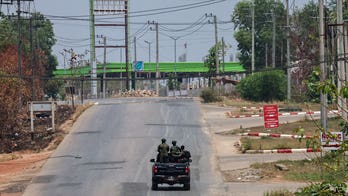As the powerful Hurricane Beryl approaches the Mexican coast, the government is taking unprecedented steps to protect its endangered sea turtle population by evacuating their eggs from vulnerable beaches.
In the face of the looming threat posed by Hurricane Beryl, the Mexican government has launched a comprehensive evacuation effort, extending its reach to protect not only human lives but also the eggs of endangered sea turtles. This proactive measure stands in stark contrast to the past failures that have plagued the country's disaster preparedness efforts.
Driven by the costly lessons learned from Hurricane Otis' devastating impact on Acapulco, Mexican officials have vowed to leave no stone unturned in mitigating the potential damage caused by Beryl. As a result, government employees have been diligently transferring recently laid sea turtle eggs from beaches to safer locations.

Mexico Evacuates Sea Turtle Eggs and Prepares for Hurricane Beryl
Using sand-bag barriers and dozens of coolers, they have created protected "corrals" and covered the eggs with sand to shield them from the anticipated storm surge. Biologist Graciela Tiburcio, a renowned sea turtle expert, has acknowledged the potential risks associated with the relocation but has also stressed the importance of preventing their loss to the destructive force of the storm.
Tiburcio noted that sea turtles typically rely on beach orientation and light to guide their return to nesting sites, and the disruption caused by the relocation may pose challenges for successful hatching. However, she emphasized the pressing need to prioritize their survival, as the waves and storm surge could potentially sweep them out to sea.

Mexico Evacuates Sea Turtle Eggs and Prepares for Hurricane Beryl
The Cancun municipal environment department has reported that over 10,000 eggs from approximately 93 nests have been successfully evacuated. The department has not disclosed the specific relocation sites, but all efforts are being made to ensure the eggs' well-being.
Carey turtles, like all sea turtle species, are protected under Mexican law, and the removal of their eggs was once a common practice. However, such actions are now strictly prohibited.
In addition to the sea turtle evacuation, the government is also urging residents in vulnerable areas to heed evacuation orders. In Punta Allen, a fishing village located on a narrow strip of land near Tulum, soldiers, police, and marines are strongly encouraging the 700 inhabitants to abandon their homes.
However, some residents are reluctant to evacuate, citing financial constraints and concerns about the safety of their belongings. The government offers free transportation out of the danger zone, but it does not provide return transportation, which has fueled mistrust among the population.
Past failures in disaster preparedness have eroded public confidence in the government's ability to respond effectively. Hurricane Otis' devastating impact on Acapulco, which left at least 52 dead and caused widespread destruction, still lingers in the minds of many.
The government's current proactive approach represents a significant departure from past practices, demonstrating its determination to learn from past mistakes and prioritize the safety of both its citizens and its endangered wildlife. As Hurricane Beryl approaches, Mexico's commitment to safeguarding its vulnerable populations is being tested, and the nation stands ready to mitigate the storm's potential impacts.










